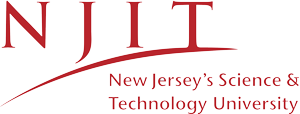
Bringing decades of experience as a professor, department chair, associate dean, and dean, Dr. John A. Pelesko joined the New Jersey Institute of Technology (NJIT) as their new provost and senior vice president for academic affairs in the fall of 2023. Dr. Pelesko was quite familiar with NJIT, having earned a Ph.D. in mathematical sciences from the institution in 1997. “I was the very first math Ph.D. to graduate from NJIT,” shares Pelesko. “After graduation, I was a postdoctoral scholar at California Institute of Technology, and later took my first faculty appointment at Georgia Institute of Technology. I then headed to the University of Delaware (UD) and spent over twenty years in teaching, research, and leadership roles at the institution. A little over five years ago, I became dean of the UD’s University’s College of Arts and Sciences (CAS), which is the largest college at UD. I planned to finish my career at UD, but then NJIT approached me with a very special opportunity to interview for the provost position at the institution where I earned my Ph.D.”
After 26 years, Dr. Pelesko has come full circle and is living just a couple of miles away from where he resided as a graduate student. “NJIT has grown dramatically since I’ve graduated and I’ve enjoyed visiting every department on campus and getting to know the people here,” says Pelesko. “We serve students from all around the world. We’re designated as an Asian American and Native American Pacific Islander-Serving Institution (AANAPISI) and Minority Serving Institution (MSI), and are about to be designated as a Hispanic-Serving Institution (HSI). Here at NJIT, we want to make a difference in people’s lives, and I know from my own background and experience that the university definitely did that for me.”
Leading by Listening
Following such an interesting trajectory not only allowed Pelesko to build a rich experience in education, but he gained the ability to understand other people’s unique perspectives and challenges. “As I returned to NJIT and got to know the institution as it is today, the first thing I wanted to do was to learn and to listen,” shares Pelesko. “I think the advantage that I’ve gained from the different roles I’ve held in my career is that I can see other people’s perspectives, even though it may be set in a particular culture and context, with aspects I will need to work at to understand. It has been helpful recognizing some of the specific challenges different departments and roles face in today’s climate, and this insight helps inform my work now.”
“My personal philosophy toward leadership is truly listening to understand the challenges and vision of your team,” continues Pelesko. “I bring an outside perspective and experience with managing many of the areas that are impacting higher education and aim to work to develop a common shared vision and understanding of what we want to accomplish as an institution. In looking at NJIT specifically, we are the state’s public polytechnic university and are primarily a STEM institution. We have many strategic advantages, including where where we’re located, the population we serve, and the opportunities we offer. Going forward, there is a level of modernization that needs to happen with our student success enterprise to meet the expectations of today’s students. These individuals are looking for higher education to align with what they encounter in the rest of their lives, and this is one of the big shifts we plan to make.”
Keeping Pace with Change
Focusing on student outcomes is among Pelesko’s top priorities and ensuring NJIT’s undergraduates and graduates have the tools and resources they need to be successful. “Many systems of education are overly complicated, so we plan to review these systems and identify how they can be more efficient and effective,” says Pelesko. “In the years since I graduated, the world has changed dramatically, and the rate of change keeps increasing. Higher education generally does not adapt very quickly, and there is merit to that. But when change in the outside world is getting faster and faster, your response time must evolve to match that speed or you risk becoming inefficient.”
“We must fully embrace change, like the emergence of artificial intelligence (AI) for example, because these rising technologies will impact every aspect of higher education,” Pelesko continues. “Whether it’s our operations, how we deliver education, how students complete their work, or the skills that will be needed when students graduate. Among my top priorities is helping to accelerate the rate of change at the institution to keep pace with our changing world.”
With the massive shift in technology and the growing prominence of AI, Pelesko says NJIT has embraced this change, rather than fearing its impact. “For example, our College of Engineering formed a committee to explore ways to integrate AI into our curriculum and how engineering disciplines could be impacted. We want to better understand what students will need to know and how we as a university can strengthen those skills. Since we are still unsure how advanced technology like AI will change what students do day to day, the biggest piece of the puzzle is determining how to drive forward, and we will continue to explore how to better integrate and understand advanced technology.”
“For example, our College of Engineering formed a committee to explore ways to integrate AI into our curriculum and how engineering disciplines could be impacted. We want to better understand what students will need to know and how we as a university can strengthen those skills. Since we are still unsure how advanced technology like AI will change what students do day to day, the biggest piece of the puzzle is determining how to drive forward, and we will continue to explore how to better integrate and understand advanced technology.”
— John A. Pelesko, Ph.D.
Provost and SVP for Academic Affairs, NJIT

Enhancing Research and Scholarship
While NJIT’s core mission is to serve the state of New Jersey and the region, the institution also aims to attract more international students and continue to build partnerships in the global education community. Since research is an integral part of a strong academic experience, an important part of this initiative is continuing to build national and international prominence in research through new discoveries.
In the last decade, NJIT went from an R2 to an R1 institution and has specialized research centers that are at the forefront of world-class technological research. “NJIT has a very applied focus to their research and is looking to solve problems that industry, government, and society are facing around the world,” says Pelesko. “Our institution can leverage corporate connections, both from a research perspective and to the benefit of our students, which is a huge advantage. We’re located in a geographical region with numerous companies, so there are countless opportunities for our students and faculty. The challenge is often deciding where to focus when there are limited resources and finding the most impactful ways to raise competitiveness and expand our research enterprise.”
Even with the slow time scale on which higher education often evolves, Pelesko says the institution looks to rapidly embed and experiment with technology across all of their educational programs. “Whether it’s augmented reality (AR), virtual reality (VR), AI, or machine learning, I want to empower our faculty and our students to explore these technologies and play in the sandbox. Through this exploration, we discover new ways to leverage technology, build advanced skills for the workforce, and turn data into valuable insight and information.”
Facilitating Lasting Partnerships
NJIT’s interdisciplinary approach to learning allows students to explore fields outside of their major and advance their career opportunities through internships, co-ops, and mentorships. “At a time where STEM careers are increasingly important in helping advance and improve society, NJIT looks to marry the experiential and the academic parts of the college experience into a holistic plan for every student,” explains Pelesko. “We want to give our students an edge and allow them to gain valuable experience before they graduate.”
To help advance this vision, NJIT continues to build its partnerships and learn from other thought leaders in the industry. “So often institutions of higher education end up competing instead of collaborating, and organizations like Edge are helping to change that story,” says Pelesko. “Edge acts as a glue in the education and research ecosystem and helps facilitate interactions between our institutions in productive and innovative ways.” Dr. Forough Ghahramani, Assistant Vice President for Research, Innovation, and Sponsored Programs for Edge adds, “NJIT has been a long-time partner of Edge, and we are pleased to help them advance their research and education mission through Edge’s advanced high performance network capability and many established collaborations.”
In looking ahead, Pelesko says NJIT will continue to create a culture and experience where all students feel welcome and are able to thrive. “The Dean of Students, Dr. Marybeth Boger, and I set up a student advisory council to connect with students and determine the best way to holistically design a student experience for a diverse population. The council is representative of the student body and includes students from different majors, levels, and backgrounds, and who took different paths in pursuing an education. As the world around us evolves, I’m excited to see what the experience of our students is going to look like in five years, because I think it will be very different from what we see today, and vastly different from what I experienced as a student. I’m really looking forward to being a part of this journey and seeing what’s beyond the horizon.”


